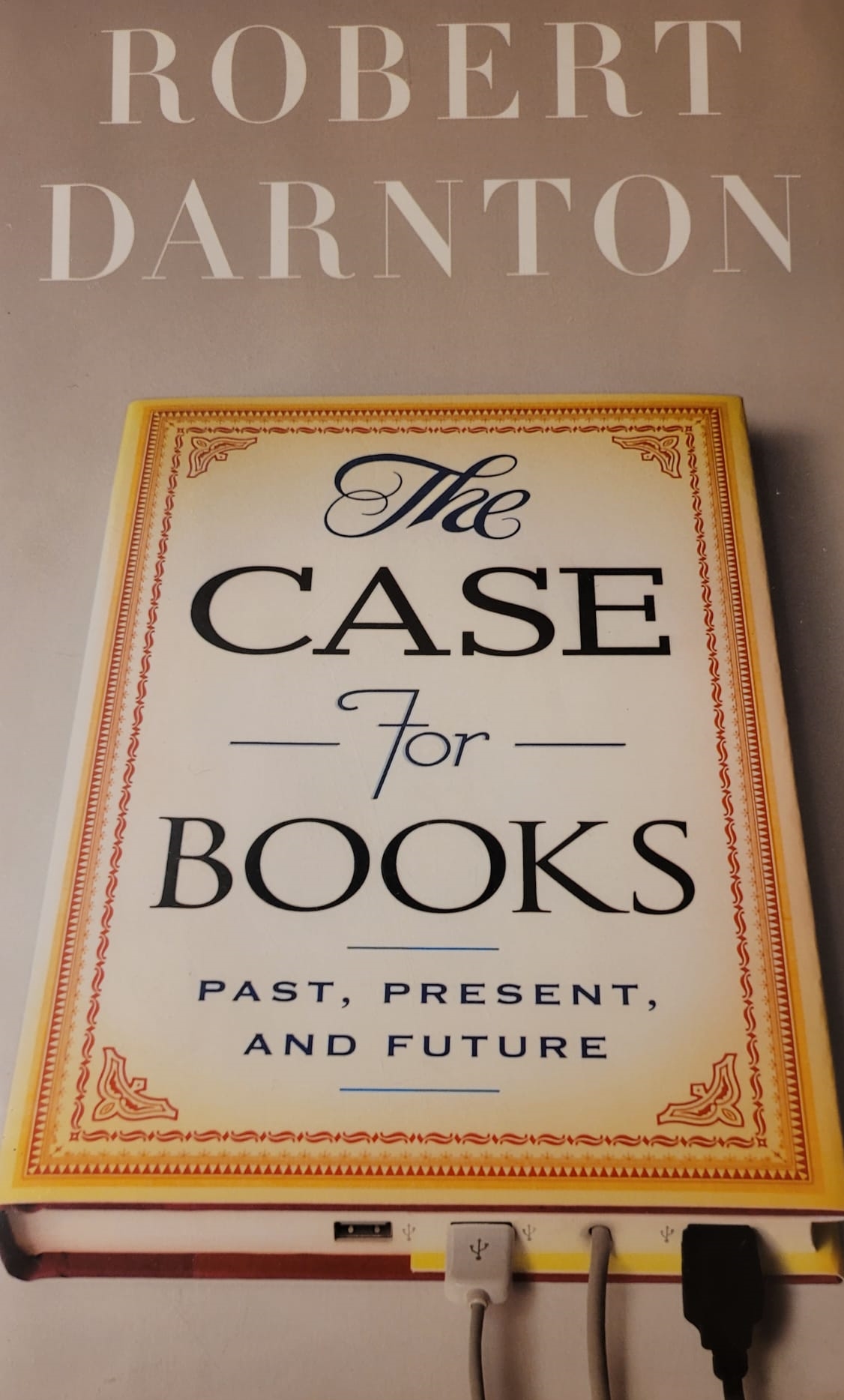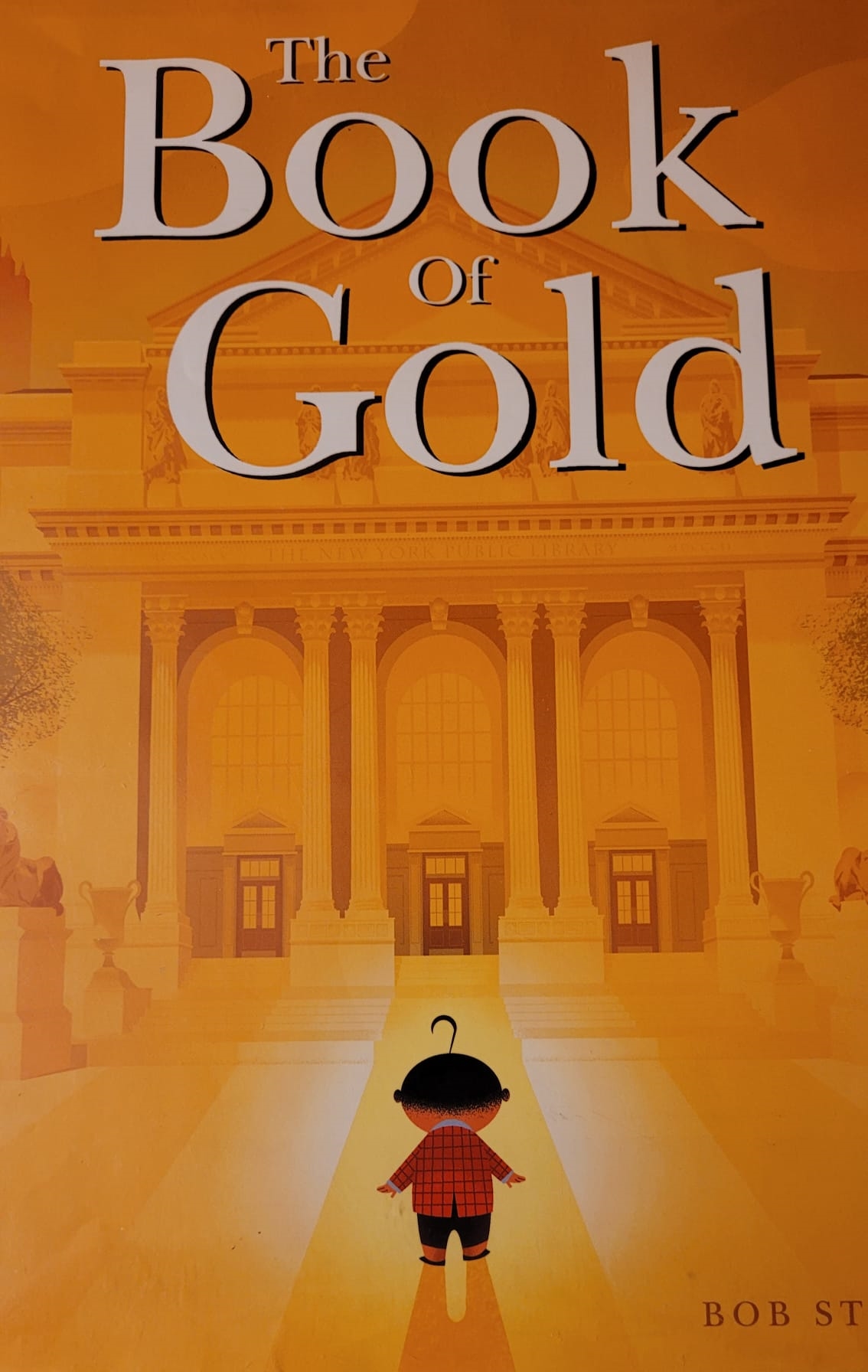At night at bedtime I read “The Book of Gold” (by Bob Staake) to Rivka, our youngest. It’s a picture book about a boy named Isaac Gutenberg who has no interest in books (or anything like books) whatsoever. He is so easily bored!
One day, in a knick-knack shop with his parents, the wise old proprietress whispers to him about “The Gold Book”. WIth a twinkle in her eye, she tells him of a rare hard-to-find book whose pages will turn to valuable gold when this elusive book is opened. This sets Isaac off on a mission! He keeps opening books everywhere he finds them, just open shut, open shut, open shut…
But eventually, a phrase or image here or there catches his eye. A snippet of info here and there, a question that intrigues, an answer that explains things.. Before long as Isaac grows up, his appreciation of books grows and deepens. Soon he’s reading books for their own sake! At the end of the book, he’s back inside the grand New York Public Library (with its two lions out front) and something happens, but we don’t want to give away the whole story, do we?
 The next morning little Rivka came into our room and saw “The Case for Books” by Dr. Robert Darnton on our night table. Not a picture book by any stretch, it’s written by the director of the Harvard Libraries. She looked at it, read its title slowly aloud, as she’s getting better at reading now. Then she said (to our great surprise and delight): “Hey, this book is like ‘The Gold Book’ we read last night!”
The next morning little Rivka came into our room and saw “The Case for Books” by Dr. Robert Darnton on our night table. Not a picture book by any stretch, it’s written by the director of the Harvard Libraries. She looked at it, read its title slowly aloud, as she’s getting better at reading now. Then she said (to our great surprise and delight): “Hey, this book is like ‘The Gold Book’ we read last night!”
Did she really understand the depth of what she said? Maybe yes, maybe not, maybe some blend of that. Not 100% sure, but it kinda seemed like it. It’s a beautiful things when children (or anyone, really) sees the commonality and connection between things, realizing, recognizing and revealing the shared core and essence of both, despite their varied shells, formats, and expression.
It is the similarity and contrast of these two books on books that brings us to the Haggadah at the Passover Seder:
“The Case for Books” is written by a former professor of history at Princeton, later the Carl H. Pforzheimer University Professor and director of the Harvard University Library, author of many scholarly and academic books. Dr. Robert Darnton did his own extensive research and lays it all out for us in the book. Of course, it leaves room for us to think and such, but for the most part its telling us what he thinks about this issue after all he’s learned on the subject.
“The Book of Gold” is a totally different approach. Its the story of a learned and lived experience, where “the teacher” (i.e. the woman running that knick-knack shop) sends little (and then uninterested) Isaac off on an unchartered journey, a learning adventure of his own, her brief whisper was merely the catalyst for his own exploration and discovery.
Both methods are important in education, parenting, learning and growth.
When it comes to the Haggadah, too many leave the readings for the leader of the Seder. The expectation is that the rabbi or grandfather share their wisdom and learning, and everyone else listen in and do what they can with that knowledge. More “The Case for Books” style.
But “The Book of Gold” reminds us that the best learning experiences are personal journeys! We have to find our way – and ourselves – through the journey of the 15 Steps of the Seder! Yes, our grandparents and rabbis can be valuable and necessary guides along our route, they show the way, they illuminate the path, help us with tools, but the discovery (and passing it on!) is so much better when it is our own!

